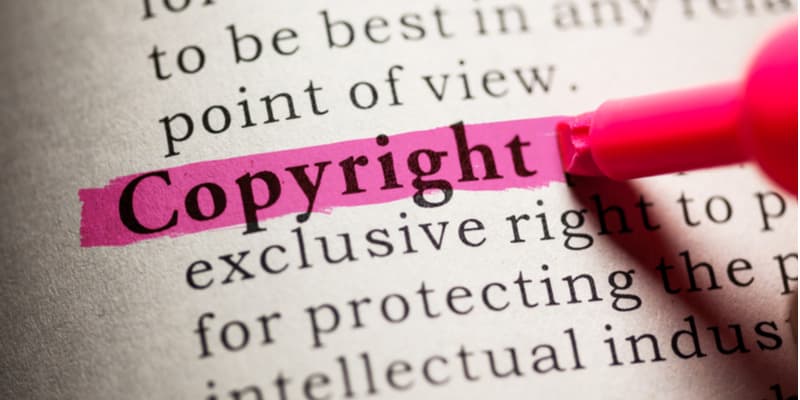With the power of the internet, anyone can start a business. This opportunity, however, comes with its own caveats.
Navigating the rules and regulations that all businesses are beholden to can get tricky, especially when the rules continuously change and adapt year after year. Not knowing these legal risks is dangerous, as it can leave you vulnerable to litigation even without your explicit negligence.
To help all companies – with particular emphasis on start-ups and small businesses – we have compiled a guide on the most common areas that companies go wrong.
Not being properly registered
To operate as a company in Australia, you must be registered correctly. This means having:
- ABN – Australian Business Number
- GST – Goods and Services Tax registration
- TFN – Tax File Number
- PAYG – Pay as You Go
Not being fully registered could spell disaster for your company, and it is very easy to set up in the beginning by following the Government's registration checklist.

If you haven’t trademarked your name
If your business has a unique name, you should also consider trademarking it. A trademarked name can be very powerful – especially in the future. It means that when someone thinks of your brand name, there aren’t any other contenders in the ring. If you don’t adequately trademark your product, then you could end up like McDonald's, who lost their case against Supermac’s, a small business in Ireland, over their name. What this means is that in the European Union, McDonald’s holds no trademark over the name Big Mac or any variation of.
The result? Burger King uses the opportunity to rip-off McDonald’s by renaming their products “Anything But Big Mac,” “Like a Big Mac, But Actually Big” and so on. This proved to be a humiliating blow to McDonald’s and a huge bonus to Burger King, though in most situations the end result won’t be quite so humorous.
Having an unclear ownership structure
Another key mistake that new businesses make legally is to not create a definite shareholder’s agreement. It doesn’t matter if you go into business with your best friend, you must put your relationship, responsibilities, and all other fine details down on paper. If you don’t, you could be held personally liable if, say, your business goes into debt. Being clear is also beneficial for tax reasons if you ever wish to sell your business on in the future.
Another benefit of having a shareholder’s agreement or other legal document detailing the ownership structure of your business is that it maintains a fair relationship between all parties. An agreement could stipulate that all shareholders must vote on big decisions, and those majority shareholders could not overrule their minority counterparts based on ownership percentage.
Not being clear about your commercial lease
Always go through your commercial lease to ensure your company is not liable for unexpected costs like utilities, taxes, and even damages. Never sign a lease without going through the contract fully and hashing out terms until everyone agrees.

When you don’t go above and beyond for safety
Everything you own is your responsibility. If you have a warehouse that people only visit once every month, you are still responsible for ensuring that the warehouse and all its equipment meets safety standards. Always go above and beyond and get professionals to inspect and certify your equipment on a regular basis to ensure you are doing all you can to protect customers, clients, and workers.
It is also illegal to not have worker’s insurance for your employees. This will help them cover expenses should they get injured on the job.
Tip: Regardless of how much effort you put into safety, things can still go wrong. Always have liability insurance to cover your costs in case an injury occurs.
If an employee or manager acts inappropriately
Sexual harassment, racial harassment, and other acts of bullying are illegal in Australia under the Fair Work Amendment Act 2013. If you or any of your employees are found guilty of such harassment, they could be held accountable under the Occupation Health and Safety Act 2004. You could also face a severe backlash from the public if the case is taken to the media. Instead of encouraging or passively ignoring this behaviour, enact a strong anti-harassment policy and create a system so all acts of harassment can safely be admitted to HR. Work to create a respectful, healthy and professional workplace culture, and ensure that you have HR policies in place.
Ensure you comply with the privacy act
If your business collects customer data it’s essential to be across the legalities of usage and storage. The Privacy Act in regards to data is relatively new, and as such can be hard to understand. Read through the full Privacy Act 1988 to understand where your responsibilities lie with the personal information of your customers.
When you fail to mitigate climate risk
Another risk for companies is in regards to the climate. Companies who have proven to negligently destroy the environment make themselves liable for legal action. Take the Deepwater Horizon incident. The oil spill destroyed wildlife and the environment along the Gulf of Mexico and caused the deaths of 15 people and countless more injuries. To date, BP has paid out over $2.1 billion settling accident claims alone.
More recently, papers released by the Commonwealth Climate & Law Initiative (CCLI) have explained the extent to which owners and directors of companies could be held personally liable if they fail to comply with environmental protection laws. To avoid this, companies must put sustainability first, else risk litigation and public backlash.
You have not complied with fair trading laws
Fair trading laws are a huge source of contention in Australia. On one side, disruptive companies that seek to completely revolutionise their industry are hit. Take Uber, for example. This company has caused a significant decrease in the taxi industry. The Australian Competiton and Consumer Commission (ACCC) operates as a watchdog to look into these cases to ensure fair trading laws are abided by throughout the country. The ACCC also ensures that one industry does not go bankrupt overnight in a bid for, say, automation.
You have not followed regulations
There are several regulations documented by the government that you must adhere to when operating as a business. These include:
- Pricing regulations
- Displaying prices
- Product labelling
- Warranties and refunds
- Honest advertising
Being familiar with Australian law can help you adhere to these regulations and make them work for you.
You misuse independent contractors
Another common problem that Australian businesses can run into is not understanding the difference in staff roles and contracts. If you bring in a part time employee for so many hours per week, they are legally entitled to full-time employee status. Be familiar with these employment laws so that you can provide your employees with fair working conditions and so that you do not breach the law.
You have dismissed someone unfairly
You must have cause to fire someone under your employment. Before you react too hastily and dismiss an employee in anger because you are stressed or because you do not like them, read up on the causes for wrongful dismissal. You can save your company a lot of money and face by adhering to employment laws.
You have infringed Intellectual Property of another business
What you might have thought was a great name or catchy marketing campaign might have already been trademarked by another company. Regardless of whether or not you came up with it entirely on your own doesn’t matter. If another company has trademarked the name, logo, or anything else - you are at fault. It is good practice to always research your ideas beforehand or try to trademark them yourself before you put them into play.

Famous legal stories in Australia
The mighty have fallen at the face of a federal judge, but make no mistake – no business is safe. The crux of operating as a company is that you automatically deal with people. From customers to suppliers, from partners to employees. If you negligently disregard their welfare and aim to act unscrupulously or do not do your due diligence, you could be held liable. There are a variety of reasons that you could get in trouble with the ACCC and find yourself in a legal battle, just as these companies below have:
Uber vs. Taxi Drivers
Uber caused quite a stir around the world with its ground-breaking business model. This model, of course, is direct through to taxi drivers. Class action lawsuits against Uber were submitted around the world, from the United States of America to Canada, to the UK, and of course to Australia. The one in Australia is reportedly the largest lawsuit in the nation’s history, as thousands of car hire drivers (taxi drivers and private drivers) filed in.
Their case basis is that Uber operated illegally from 2014 onwards, though every jurisdiction in Australia has since legalised Uber. Their main complaint and the driving factor for this lawsuit was the sheer drop in business and of course, the cost of a taxi license. Before taxi licenses acted as a retirement fund of sorts. Selling one on used to cost $500,000, whereas in 2018 when this class action was implemented, the value dropped to $50,000
This drop in value was a small pittance to compensate for the sheer damage that Uber caused to the industry. NSW created an adjustment package to compensate taxi drivers in an among of $250 million, and the government offered a buy-back program to reclaim taxi licenses – but at a fraction of the cost.
Lawsuits against Uber were a success in the past, with a case ruling that Uber drivers were not exempt from paying GST. In Europe, it was deemed that Uber was not exempt from taxi driving laws, regardless if they acted as a mere mediator between driver and passenger.
The opposite has also been true, however. Uber filed a countersuit in London, UK, after it was banned, and won the right to operate in the capital once again.
Takeaway: Be prepared to face a legal backlash if you work for or own a disruptive company in any industry.
Uber Eats investigation for violation of the ACCC
The ACCC has recently launched an investigation against Uber Eats, and though no litigation has occurred yet, it does show that even the most competitive market is not free game. The investigation was launched after the unfair and bullying tactics used by Uber Eats came to light, rising with the voices of many unhappy restaurant owners. Why? Because Uber Eats drivers are untrained, and if the food arrives spoilt or cold due to the driver’s error, rather than the restaurants, the restaurant still had to cover 50% of the refund cost. This cost is on top of the 35% cut that Uber Eats takes from every order.
The full disclosure of the contract that restaurant owners must agree to when working with Uber Eats might fall under unfair competition, hence the investigation. During this investigation, they will deduce whether the contract is one-sided, and if it is, what changes will need to be made to rectify the matter.
Takeaway: Maintain fair business practices to ensure the future of your company and to avoid legal scrutiny.
Woolworths negligence case
Some evidence used in the case against Woolworths included a toddler who was inflicted with chemical burns and a woman who suffered from a fractured vertebra. These injuries, though they sound unrelated, were. They were related because these victims were injured when using home-brand products from Woolworths. According to the ACCC, these products were sold knowingly, making the case a serious one.
As the years have gone by, it has been determined that over 124,000 people used a faulty drain cleaner, which even Woolworths itself admits was the “most serious of the misleading conduct contraventions.”
Since then it has been under scrutiny for a variety of reasons, most recently due to its misleading advertisement over its “W Select Eco” picnic products.
Egg farmers monopoly
One recent case that was taken to court was against egg farmers in Australia. The reason? These farmers attempted to artificially raise prices on their products by killing hens early and burying their eggs. These eggs would have flooded the market and caused their prices to drop.
Though this tactic might sound like a smart way to maintain profits, it is illegal, hence the litigation against the Australian Egg Corporation.
Takeaway: Producing a false shortage to improve or maintain profits is illegal in the Australian market. Do not assume that you can copy the diamond industry’s tactic of withholding gems from flooding the market.
Coles false marketing claims
False marketing is illegal in Australia, so when the ACCC investigated Coles for its “freshly baked” bread claims and discovered the product was, in fact, made all the way in Ireland or Denmark. Coles lost the case and were banned from advertising their bread products as fresh for up to three years, regardless of whether they produced their bread in-store from then on or not.
Takeaway: False advertising can kill a business, especially small or upstart companies that have yet to develop longstanding relationships with their customers.

How to ensure your business stays within the rules of the law
Companies can be liable and face both criminal and civil cases against them for activities they were knowingly complicit in and those they were not. As a manager or business owner, you have the responsibility to ensure your company stays on top of the law and adheres to all requirements.
Never cut corners when it comes to operations
If you are responsible for your supply chain it’s important to know of loopholes that governments may clamp down on in the future. The fashion industry is one great example of this. Previously, brands used the excuse that the overseas factories were operated by third-parties. Now increasing pressure is being mounted for them to oversee their entire supply chain to ensure that it adheres to fair work, safe working environments, and of course environmental protection.
Another example of how lack of awareness along your supply chain could leave you liable is if the product in question is not safe. If you sell an unsuitable product, expect litigation. Always product test and be fully prepared to recall products that accidentally go out. If the public or the ACCC discover you let faulty and dangerous products go onto the shelves, your company will be ruined.
Aim to manage a fair and conscious company
In general, a great way to operate without the threat of the law and gain the approval of the public is to operate with a fair and conscious attitude. Try to give back to your community, always provide more than fair working environments and contracts, and do your part to minimise your company’s impact on the environment. Doing this will help reduce the risk of negligence and with the right management and marketing, can be used to boost your sales. Innovation and a forward-thinking attitude can work wonders for a company.
Create a zero-tolerance environment
Harassment of any form is illegal and should be stamped out within your company as soon as possible. You can ensure compliance with this policy by requiring every employee to take a compliance course and to read over your anti-harassment policy.
Part of this policy must include a means to easily and even anonymously report harassment where it will be investigated with all seriousness. Failure to provide such options for employees could result in serious backlash for your company and potential involvement with the media or the law.
Stay on top of legal changes
Even with a business law degree, things change. It is up to you as a business owner or as an advisor to stay on top of all changes that relate to your company. Take the recent plastic bag ban in Australia. If you were unaware or ignore this ban, you could be facing legal action. Not all changes, however, are quite as publicised. For example, in 2018 a change was made in regards to payroll.
Businesses who employ more than 20 employees will now have to:
- Report to the ATO after every payslip
- Provide their salaries, wages, allowances and deductions, and any PAYG
Other examples of changes that haven’t been advertised quite as heavily include the requirement that food must now contain a label that indicates its country of origin.
In some cases, businesses might want to hire a specialist. Changes to the Privacy Act that now include digital data can be confusing to navigate, and having someone on board that can not only ensure your company knows the rules and regulations, but also how to ensure your website and customer support do not violate these rules is essential.
Tax laws also tend to be very confusing to navigate; however, having an accountant or working with an accounting firm can reduce the risk that your company unknowingly breached regulation in regards to your taxes.
Learn the ins and outs with a law degree
For business owners, managers or any employee who wishes to improve their career prospects there is a great option available to you – obtaining a business law degree. Unlike a pure law degree, this degree focuses primarily on business law and how to more effectively identify risks and understand your obligations.
Obtaining a Master of Business Law from Southern Cross University is a great way for non-lawyers to safeguard themselves and their company. The study is part-time and 100% online, so you can start implementing what you learn right from the start. Minimise risk, safely manoeuvre around the legal system and know first-hand all the legal obligations required of your business in Australia.





